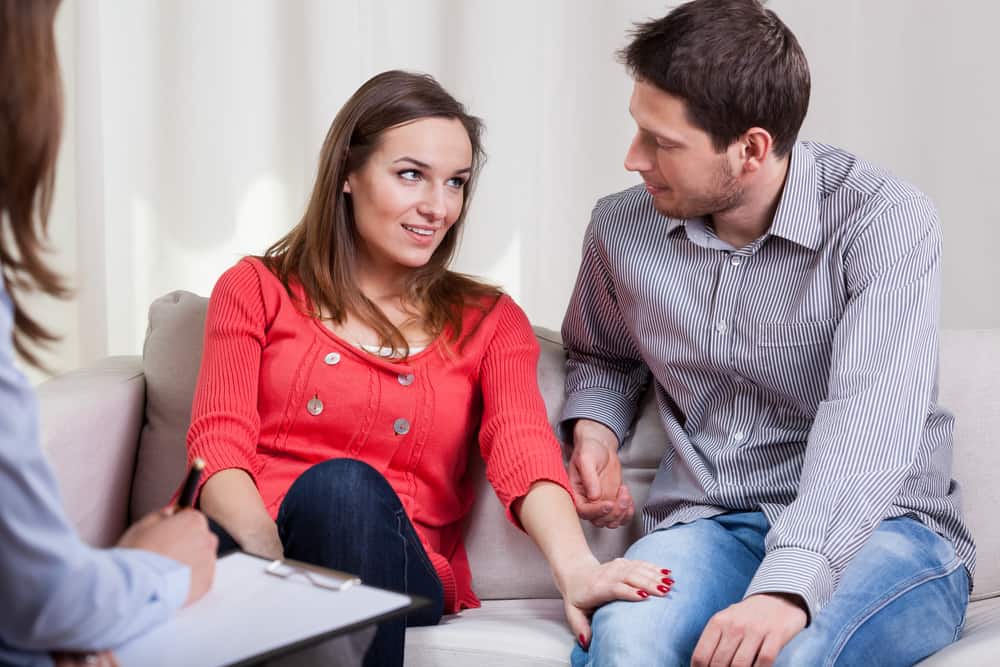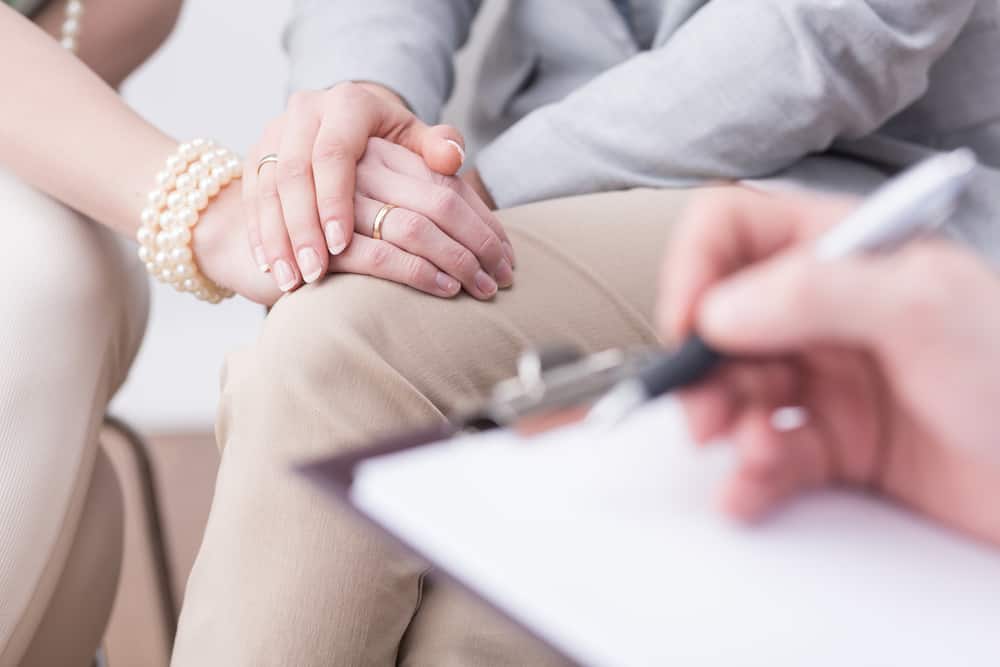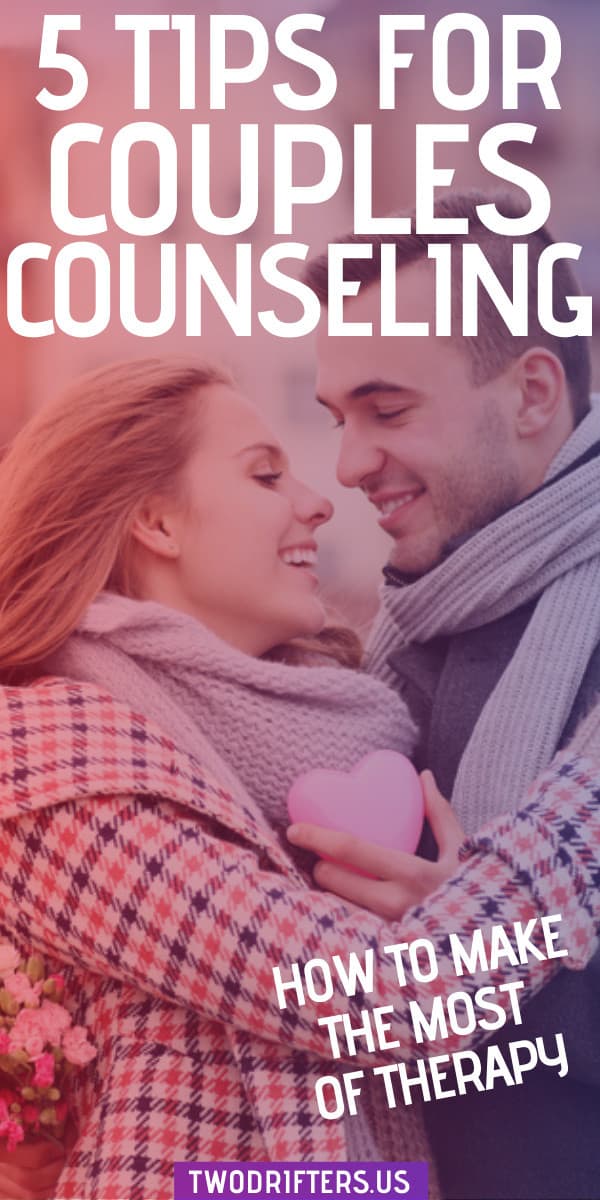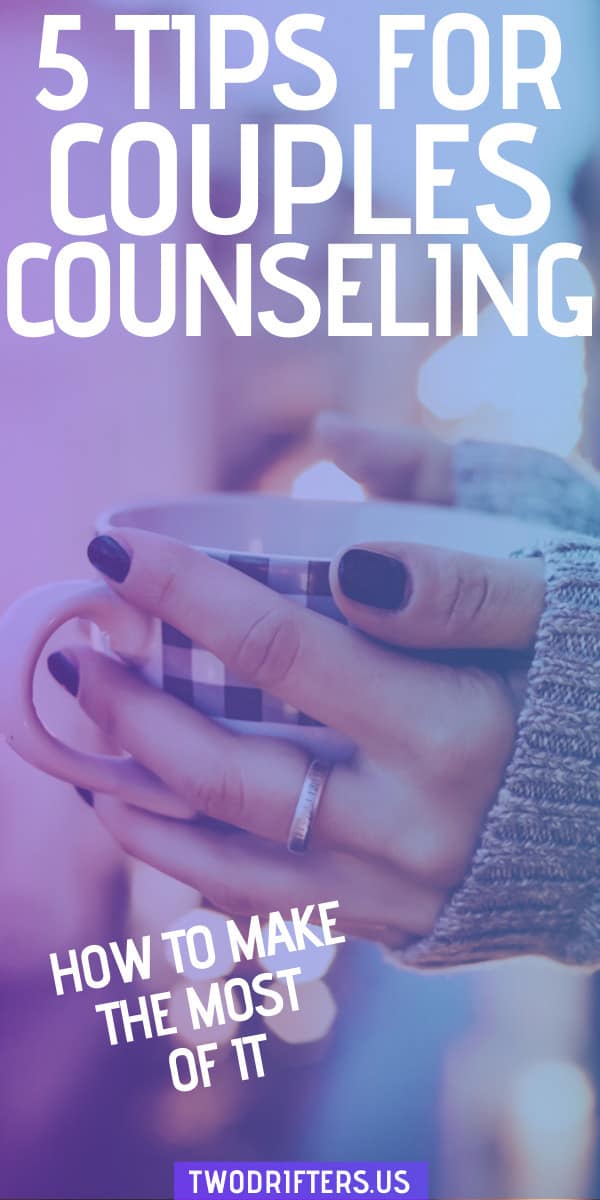This post may contain affiliate links. Read our disclosure page for full details.
This post on tips for couples counseling was written by Alicia Sweyd, MA, LMFT
Who here remembers that romantic comedy with Kate Hudson and Matthew McConaughey? The one where they start dating each other to prove opposite points about relationships? How to Lose a Guy in 10 Days! Seriously, it is one of my most favorite rom coms! Not gonna lie, I actually reference it in my counseling sessions with couples regularly. But it get’s my point across very effectively! If you haven’t seen the movie, or haven’t watched it in a while, stop what you are doing and go stream it! (Or if you are old school like me, grab your dusty old DVD player and plug it in!) Full disclosure, this article has a few *SPOILERS*.
I want you to remember the part where they get into a big fight, and Matthew McConaughey’s character suggests they go to “couples therapy”. He even struggles to get the words out he is so grossed out by the concept. Next scene, they are with Kate Hudson’s friend (played by Kathryn Hahn) pretending to be a therapist. And she is PLAYING. THE. PART. The deep, soothing voice. The dark clothes. The glasses. The sexual inuendos. Hahn has got it going on in this scene!
Now, let’s be honest. When you hear someone suggest couples counseling, you picture this scene. Maybe not as insanely comical, or not as intense, but very close to it. I did! I thought all therapists needed to fit the stereotype. And I thought all couples had these crazy outbursts that got out of control. (To be honest, I think even my husband still thinks this is what it looks like!) And I know quite a few couples who connect with me for couples sessions have this belief, as well.
But this is far from the truth! Yes, sometimes sessions can get intense for couples who are dealing with some very difficult challenges. Yes, some therapists can match the stereotype. BUT NOT ALL! Not all sessions are intense. I have had plenty that were filled with laughter and joy, some tears of compassion, and allowed for the couple to grow deeper than they had hoped. Not all therapists are the stereotypical glasses and shawl asking, “And how do you feel about that?” I had a therapist covered in tattoos and piercings who was eccentric and lively.
The cool thing about counseling is that you get to decide what you want it to look like, and how you want it to help you and your partner. And I have a few couples counseling tips for you here: how to get the most out of your couples counseling sessions.
Be honest.
Be honest with yourself. Be honest with your partner. Be honest with your counselor. Just be honest!
I can’t begin to tell you how many issues people faced in the sessions could have been resolved moths prior if people had been honest with me or themselves. Sometimes, you may find yourself feeling uncomfortable telling your counselor you don’t want to try something because they are supposed to be the “experts”. I’m going to tell you a little secret about therapists and counselors, some of them may not want you to know this, but here it goes: We are NOT mindreaders. Phew! There! I said it! We cannot read your mind to find out if what we suggest is the best option for you. We need your honestly to help us help you best.
Also, you need to be honest with yourself. Admit when you have done something that didn’t help your relationship. Admit when you have been hurt by something your partner did, even if it seemed small. I’m not saying you need to make a huge deal out of it, or that you even need to bring it up with your partner or counselor. But you do need to acknowledge it for yourself. If you can’t admit the truth to yourself, if you refuse to clearly see your own perspective, then counseling will only help a little instead of a lot.
Have an open mind.
So many of the struggles faced by couples stem from the inability of one or both partners to be willing to consider an alternate perspective.
Your story has validity. So does your partner’s story. Both may have some validity and still not have the whole truth between the two. That’s where a counselor can come in to help. The counselor can help you see all perspectives, and find out where the root of the problem is, so you can move forward and strengthen your relationship.
You may have said something that hurt your partner. You didn’t intend it, so they shouldn’t feel hurt, right? Wrong. Intentions are a piece of the puzzle, results are another piece, and finding a way to communicate better is another piece. But you can’t complete the puzzle without all the pieces. So this is where having an open mind can help you get the most out of counseling.
Understand that your counselor has lots, and I mean LOTS, of information.
Oh my gosh. Can I just tell you how may books I have read about couples issues? I have read quite a few on ways of approaching couples counseling, theoretical books. I have also read SO MANY books that are self-help for couples. Lots of tangible tools and guides for engaging with your partner. It’s like having an encyclopedia of information just about the different ways I can help couples strengthen relationships.
But guess what? That means I am searching the database of my brain each time I talk with a couple. “Oh! Fighting about chores! I remember this from books X, Y, and Z! Now which one do I think will help this couple most?” And then I make a hypothesis about what tool will best help this couple. Go back to fifth-grade science. Do you remember what a hypothesis is? Guess. No, I mean, like that is what it is. A guess. It is an educated and well-informed guess, but a guess none the less.
Now, for those of us with lots of couples counseling experience, we will find a “good enough” or even “excellent” solution 90% of the time. But sometimes, we don’t guess right. And that’s okay! We have more! Let me try this other one!
But wait! What if I give you my best guess as to what solution would help you, and it’s wrong, but you and your partner aren’t honest? Well, I can’t share my other ideas with you, because I don’t want to overwhelm you with too much information and cause you to become confused. This is where that honesty comes in your favor.
And if you want more information, ask! You can ask why they think this will be the best fit. You can ask where the idea came from. You can ask if it is based on decades of research from relationship institutes, or if it is based on a book that some people found helpful. Ask questions! We love to share the information!
You are the producer of your counseling experience.
You and your partner are paying a pretty penny for your sessions with a counselor. IT IS WORTH IT! TRUST ME! You are getting personalized, individualized service from a person who knows more about your concerns that you could read about in a year. Their experience and education is what you are paying for. Now, you could go out and get the education and training yourself, but it would take you a lot longer. Plus, it would cost you a lot more to go through the process yourself. Hence, the counselor.
But you are also producing the work. Like with a film, the producer decides who to trust. The producer hires a director they think will be the best for the film. They trust that the director will create the vision the producer is hoping for. But if the director is not doing the job the way the producer wants it, they can tell the director to change directions. You can do the same! If your counselor is approaching an issue that you feel is out of context or is not the root problem, you can ask them to focus on something you think would be more helpful. You are the expert on you, your counselor is the expert on counseling, which is not a “one size fits all” system. So, share what you are experiencing, what you are hoping for, and how your counselor is helping or not so that you can get the most out of your counseling sessions.
Find a counselor that fits YOU.
Remember how I said that some counselors fit Kathryn Hahn’s stereotype of the shawl and glasses with the deep voice? I also said that a therapist I had was covered in tattoos and piercings and was a character. The spectrum of personalities for counselors is broad, to say the least. Mrs. Tattoos was the best fit for me. I also tried a therapist who fit the “glasses and shawl” stereotype, but it wasn’t a good fit. For me personally, I need someone who is eccentric and playful, someone who allowed me to see the dark humor in the struggles I am facing.
Take your time in searching for a counselor. Read bios, ask them if they offer a free consultation so you can see how comfortable you feel talking with them before you start sessions. Get a feel for how they talk with you, how they listen to you, and see if it is comfortable for you.
When finding the counselor for you and your partner, consider a stoplight. Red means absolutely not, no way, no how, don’t think I could ever feel comfortable with being vulnerable. Maybe the counselor was too abrasive or not assertive enough, maybe the counselor reminded you of that guy you used to work with who was a total butthead. It doesn’t matter exactly why, but if you don’t feel comfortable sharing your deepest struggles as a couple, you won’t progress much in counseling sessions. Yellow means maybe, I’ll need to try it out more and see. Then give yourself a couple of sessions to see if they are a good fit for you both. If yes, awesome! If not, keep looking. And green is totally 100% YES, I could probably feel comfortable telling this person all about my kinky side and not feel judged. Use the stoplight as a tool for you and your partner to find a counselor you both feel comfortable with.
The biggest take-away I hope you have is to know that COUPLES COUNSELING IS FOR YOU! Take your time in finding a counselor who fits your personality, be open minded and honest when approaching sessions with your partner. Understand that your counselor is here to help you, and they want to help you in the best way possible, which requires your input as well. Couples counseling will help you and your partner grow deeper and closer, as long as you take advantage of it. You’ve got this!
About the author: Alisha Sweyd is a Licensed Marriage & Family Therapist in Pacific Grove, California. She works with couples from all walks of life. Alisha especially enjoys getting couples to connect and build a strong base from which to grow and enjoy their relationship together!
You might also like:
- 7 Couples Communication Books That Will Transform Your Marriage
- 9 Therapist-Recommend Couples Communication Exercises
- 26 Common Relationship Myths You Need to Stop Believing Immediately
- 10 Common Relationship Problems (and how to fix them!)
- How to Fall Back in Love with Your Partner: Tips from 10+ Years of Marriage
- How to Save Your Marriage: 7 Tried & True Tips for You
- How to Build Trust in a Relationship (Even if it’s Broken)




